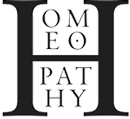The NHMRC Homeopathy Review has been under investigation by the Commonwealth Ombudsman regarding issues of scientific and administrative misconduct, supported by independent scientific investigation and Freedom of Information (FOI) documents. The following has not been publicly revealed by the NHMRC:
The 2015 report declaring there is ‘no reliable evidence’ for homoeopathy was not the original findings but NHMRC’s SECOND attempt. The FIRST review conducted in 2012 and its cost was buried.
FOI requests have revealed that a member of NHMRC’s expert committee overseeing the review process confirmed the first review to be high quality saying, “I am impressed by the rigor, thoroughness and systematic approach given to this evaluation [….] Overall, a lot of excellent work has gone into this review and the results are presented in a systematic, unbiased and convincing manner.”
FOI requests show that the research protocol for the SECOND review was retrospectively manipulated between April and July 2013 – months after the original protocol had been finalised in December 2012 and after the second contractor had completed collating and assessing the evidence in March 2013.
None of these midstream changes to the protocol, or their impact on the findings, were reported.
This resulted in a method that has never been used in any other review, before or since. NHMRC decided that for trials to be ‘reliable’ they had to have at least 150 participants and reach an unusually high threshold for quality. NHMRC routinely conducts and funds studies with less than 150 participants.
These unprecedented and arbitrary rules meant the results of 171 of the 176 trials were disregarded as being ‘unreliable’, leaving only 5 trials considered to be ‘reliable’. As all 5 of these trials were assessed as negative, this explains how NHMRC concluded that there was no ‘reliable’ evidence.
In 2013, NHMRC contracted the Australasian Cochrane Centre to review its methods. Cochrane raised key unresolved methodological problems and also advised: “when a substantial proportion of small (but good quality) studies show significant differences, […] ‘no reliable evidence’ does not seem an accurate reflection of the body of evidence.” This advice was ignored and not disclosed to the public.
Another expert reviewer advised NHMRC: “The dismissal of positive systematic reviews compounded with the lack of an independent systematic review of high quality randomised controlled trials leaves me uncertain of the definitive nature of the Report’s conclusions.” The advice was also ignored and hidden.
No homoeopathy clinical, research or subject experts were included on the Homeopathy Working Committee (HWC), in breach of mandatory NHMRC standards and ethical research protocols.
Senior NHMRC officials – including the CEO and Chairman – expressed personal and organisational anti-homoeopathy positions before, during and after the review. The first Chair of the HWC was a member of the extreme anti-homoeopathy political lobby group ‘Friends of Science in Medicine’ and the replacement Chair expressed negative views in the media that exceeded the scope of the HWC’s terms of reference


